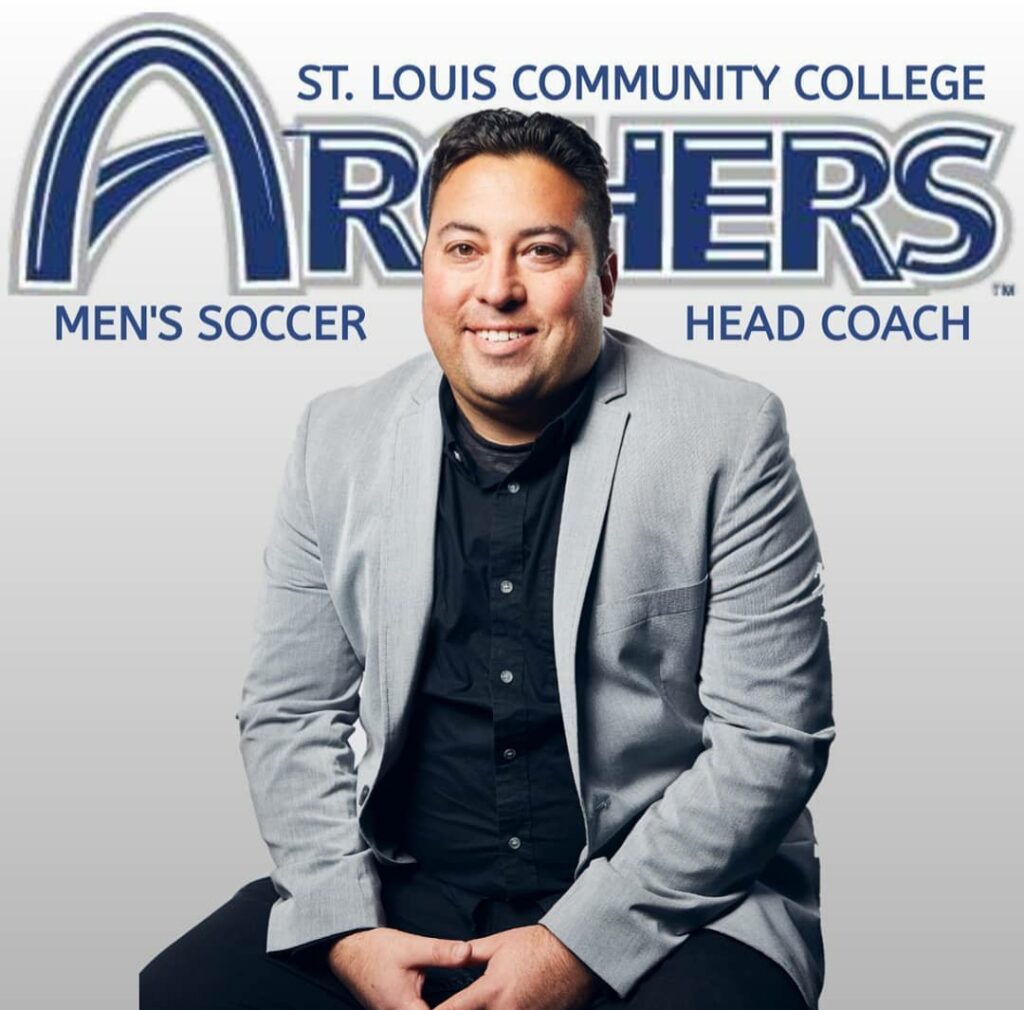Coach Ricardo Garza discusses his long history with coaching soccer.
BY: ANDREW CROWDUS
Staff Writer
Before Coach Ricardo Garza’s illustrious and successful coaching career, he was a player.

He played soccer in high school at Bishop DuBourg High School. He wanted to go pro, but some of the staff of the St. Louis Steamers got him in contact with Pat McBride and his staff at St. Louis Community College- Forest Park.
“I played three years of college and then went on to coaching after that. I planned on playing pro, and coach on the side but God had other plans for me,” Garza said.
He began coaching during his college playing years when he coached club soccer.
“I started coaching club soccer and Missouri ODP during my college playing career. One of my former college coaches reached out to me and asked if I’d like to help him start a college soccer program with him,” Garza said.
He continued, “My first year coaching college we went to the National Tournament the same year I blew my knee ending my option to continue pursuing a dream to play pro. Focusing on only coaching my college players rather than developing myself helped us win the National Championship the following season and the void of never playing soccer again was erased with the feeling of developing our young players. I was very committed and disciplined in the pursuit of playing professionally which 100% shifted to making our players better individually,” he said.
In 2005, Garza helped start Jefferson College’s soccer program.
“It didn’t exist before then,” Garza said. “I coached for 3 ½ years as an assistant, and then took over as head coach and stayed eight more years. Twelve years of experience, a National Championship, multiple National Championship appearances. We also won many local regional tournaments, and regions. We dominated the conference for a long time.”
Garza’s program was well known across the entire country.
“My staff and I created a reputation across the country that we can bring a player in who just needed an opportunity and a diverse culture to accept him and help bring them to the next level,” he said. “We became a program hundreds of four-year colleges and Universities recruited from and sent players to develop.”
Coaching is a rewarding job, he said, but it extends further than the success on the soccer field.
“As we were having success pretty early in my career, I had a lot of opportunities to move on across the country to coach. I couldn’t bring myself to do it, because the kids we would bring in were typical kids that needed to have a little extra structure in their life. Our soccer team was very diverse with kids from almost all walks of life. When they became friends, we sort of had a family environment around these guys that grew them from boys to men very quickly. That’s honestly why I stayed. We had already won, we were one of the winningest programs, so I obviously didn’t stay for the soccer. It was a system and a relationship we were building, and the families that we connected with over the years,” Garza said.
Before coming to STLCC, Garza took a break in 2016.
“I did take a few years off after 2016 to launch our professional development men’s team who plays semi-pro in the National Premier Soccer League and the Minor League Soccer Championships. Helping college players continuing their dream to play after college with my family-run non-profit men’s team is filling a void in the soccer community in St. Louis. Coaching at the semi-pro level the last few years has definitely improved my level of coaching and I feel more seasoned and ready to relaunch the STLCC program [that] Pete Sorber built years ago. Being able to follow his lead and continue his legacy here is a personal dream of mine and I am very happy to be here at STLCC,” Garza said.
COVID-19 has presented challenges for colleges, pro sports, and college sports alike. The St. Louis Community College soccer team has plenty of struggles of their own when it comes to the virus.
“Obviously our season got bumped from the fall to the spring, so there were no games this fall,” Garza said. “Some guys had to be quarantined for a while, and our whole team was as well at one point. So that right there is two weeks. I was exposed so I had to be quarantined as well, so I missed four weeks due to COVID-19 just by myself. I never got to finish the fall season coaching the guys and I wont see them until February. So it’s going to be interesting. It’s good the NJCAA isn’t going to count the spring season for eligibility.”











